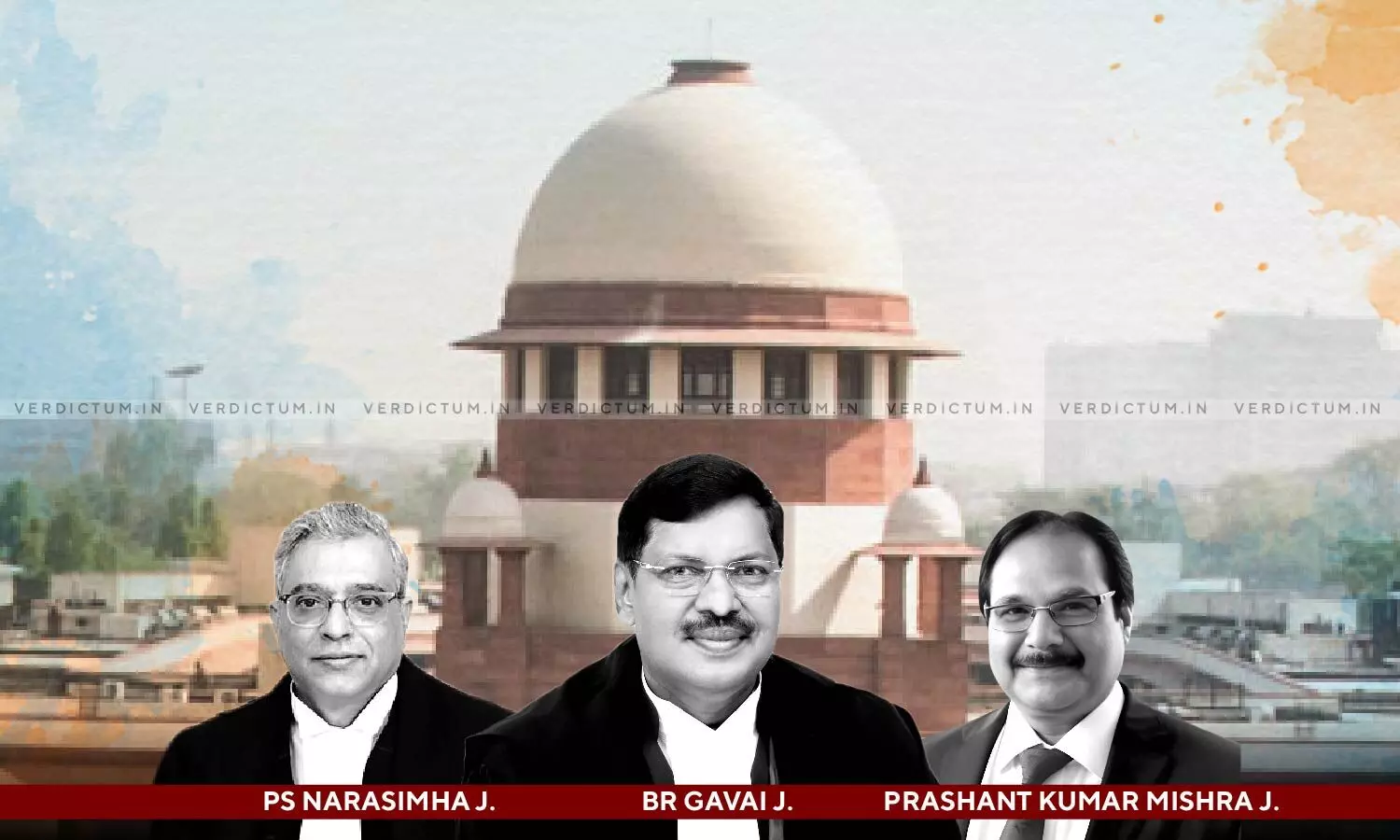
Dying Declaration Cannot Be Reason For The Conviction Of Accused When It Resulted In Acquittal Of Another Co-Accused- SC
 |
|The Supreme Court held that the same dying declaration, which was disregarded in the case of the co-accused, cannot be the sole basis for the conviction of the Accused.
The Court overturned the Appellant's (husband's) conviction order and judgment which was based on the dying declaration of the Wife. The Court highlighted that the claims of harassment due to non-payment of dowry against the Appellant were not sufficiently proved as the prosecution’s evidence was vague.
The Bench comprising Justice B.R Gavai, Justice P.S Narasimha, and Justice Prashant Kumar Mishra noted, “The most glaring aspect that is required to be considered is that the High Court itself has disbelieved the dying declaration insofar as Jora Singh, father-in-law of the deceased is concerned. We fail to understand as to how the same dying declaration could have been made basis for conviction of the appellant when the same was disbelieved insofar as another accused is concerned”.
Senior Advocate Rajul Bharga appeared for the Appellant, and Advocate Samar Vijay Singh appeared for the Respondents.
The Deceased (Appellant's wife) alleged that the Appellant would often harass her due to insufficient dowry. The Deceased informed her parents and brother about the ill-treatment she received from the Appellant whenever she visited them. Eventually, the Deceased refused to stay with the Appellant. Later, the deceased was admitted to the hospital, where she informed that the Appellant had burned her. The Trial Court convicted the Appellant and his father under Section 302, read with Section 34 and Section 304-B of the Indian Penal Code (IPC).
The Appellant approached the Court by way of a Criminal Appeal challenging the order and judgment of the High Court wherein the Court partly allowed an Appeal filed by the accused persons, whereby the father of the Appellant (Accused no 1) was acquitted, but conviction judgment and order of the Trial Court against the Appellant was upheld.
The Court noted that the case mainly rests upon the dying declaration of the wife. However, the Court asserted that a dying declaration could be the sole basis of conviction, but only if the court is satisfied that the dying declaration is trustworthy and reliable.
“The present case mainly rests on the dying declaration of the deceased. No doubt, that a conviction can be solely recorded on the basis of a dying declaration. However, for doing so, the court must come to a conclusion that the dying declaration is trustworthy, reliable, and one which inspires confidence”, the Bench observed.
The Court noted that the dying declaration was recorded by the Executive Magistrate (EM) after receiving a fitness certificate from the doctor. The Bench observed that the deceased received burn injuries on November 5. In contrast, the dying declaration was recorded on November 8 after an application was made by the relatives of the deceased to the Sub-Divisional Magistrate (SDM). After examining the facts and evidence, the Court concluded that the dying declaration was not free from doubt.
The Court held that the High Court erred by partially allowing the Appeal. The High Court ignored the dying declaration made against the Appellant's Father but relied on it to hold the Appellant guilty. The Court further held that the accusation of harassment related to the non-payment of dowry only contained a vague allegation and lacked any support for their case.
Accordingly, the Court allowed the Appeal and set aside the impugned Judgment and Order.
Cause Title: Phulel Singh v State of Haryana (2023 INSC 863)